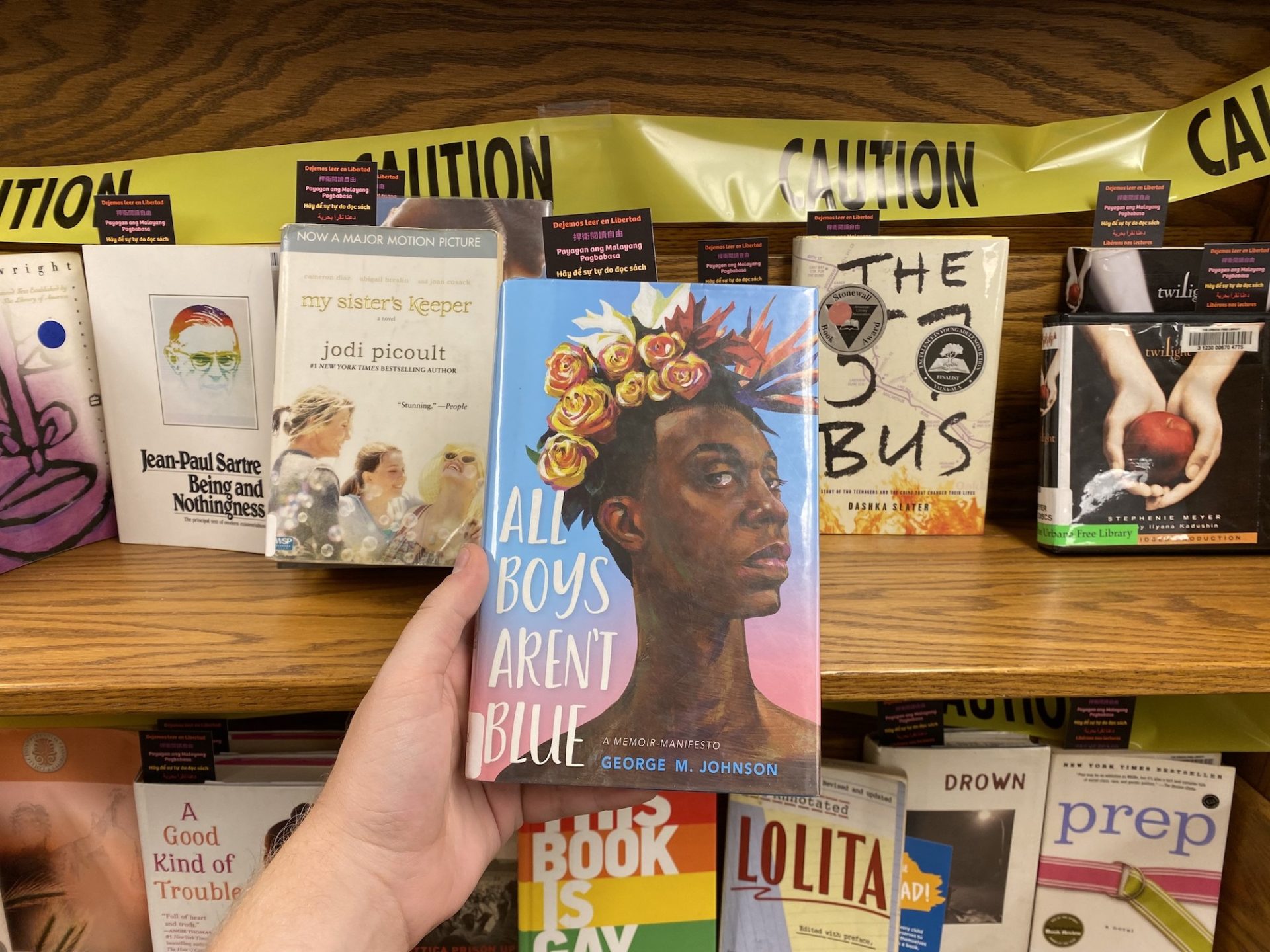
The first week of October was Banned Books Week, a nation-wide event launched in 1982 as a response to an upsurge in book bans at the time. If you were in any book-centered physical or online spaces that week, you likely saw displays of books highlighting frequently-challenged titles. It’s unfortunate that 40 years after its founding, the annual event is still needed.
Illinois specifically is a bit exceptional when it comes to book bans. In June of this year, Governor Pritzker signed a law making Illinois the first state to outlaw book bans in public libraries. The bill ties library funding to anti-censorship. Books can be removed through weeding, a normal process when libraries assess how often a book has been checked out, but they cannot be removed due to religious or political objections, otherwise the library risks losing state funding. The University of Chicago Library has also announced plans for a banned book collection, ensuring public access to books that have been banned elsewhere.
On a more local level, we are fortunate to live in a community that generally values literature and reading, and we have a number of resources that other communities our size often lack. The library at the University of Illinois is one of the largest public academic libraries in the United States (and just added its 15 millionth title). We have great public libraries and several bookstores that routinely host interesting events and promote new and local authors. Just last month was Lit Fest at PYGMALION, and we even have an annual Edible Book Festival.
So, if everything is so great in Champaign-Urbana and Illinois more generally, why are we still talking about book bans? It doesn’t affect us, right?
Certainly many people think that. On the Facebook post from the Literary with their banned books display, every single comment proclaimed (and often in all capitals) that there are no such things as banned books in America. Sure, a book isn’t going to be banned across the entire country, but it doesn’t mean that book bans (which absolutely do exist) don’t successfully and regrettably remove access to materials from people who could benefit from them. Of the 13 most challenged books from 2022, seven were targeted because of LGBTQ+ content or characters.
PEN America found that of the 50 groups involved in pushing for book bans, 73% were formed since 2021. Book bans aren’t going anywhere, and it’s likely we will continue to see more and more attempts at banning books. So, while legislation certainly helps, and we hope other states follow in Illinois’ footsteps in proactive measures against book bans, we cannot be naïve and assume this fully stops the problem. Just because we don’t live in Florida, doesn’t mean we shouldn’t be concerned that the Florida Department of Education rejected 28 math textbooks for supposedly promoting Critical Race Theory, especially when the Florida governor backing these efforts is running for president.
2022 saw the highest number of attempted book bans since the American Library Association started tracking this data more than 20 years ago, and nearly doubled the amount of attempted bans from 2021. Although Governor Pritzker’s new bill — set to go into effect in January of next year — protects anti-censorship in public libraries and school libraries, we all know that laws get challenged (and overturned) and people attempt to find ways to circumvent them all the time. It’s important and necessary that we remain proactive in our defense against attempts to limit access to certain types of books based on individuals’ personal opinions about what is “appropriate.”
In September of this year, U of I Associate Professor Emily Knox testified before the U.S. Senate Committee for a hearing “Book Bans: Examining How Censorship Limits Liberty and Literature.” In her testimony, Professor Knox argued for the value of libraries:
Libraries provide materials from a variety of viewpoints and opinions along with the services needed to access those materials. Libraries are not labyrinths that lead to the truth but gardens that contain many truths. Education and discernment allow people to make choices among these truths. As Shannon Oltmann notes, “freedom of speech is impossible or valueless without the right or ability to access that speech.” In many communities, libraries provide that ability.
We should all continue to support the places that give our community access to diverse books and knowledge. Use the library, check out books, take your teens to The Studio, support local authors and bookstores, join a book club at the Literary, buy some used books from Jane Addams. All of these spaces rely on community interest, so take advantage, appreciate the fact that we have these types of resources available to us, and use your support to help ensure they remain the necessary and vital component of our community that they currently are.
The Editorial Board is Jessica Hammie, Louise Knight-Gibson, Julie McClure, Patrick Singer, and Serenity Stanton Orengo.
